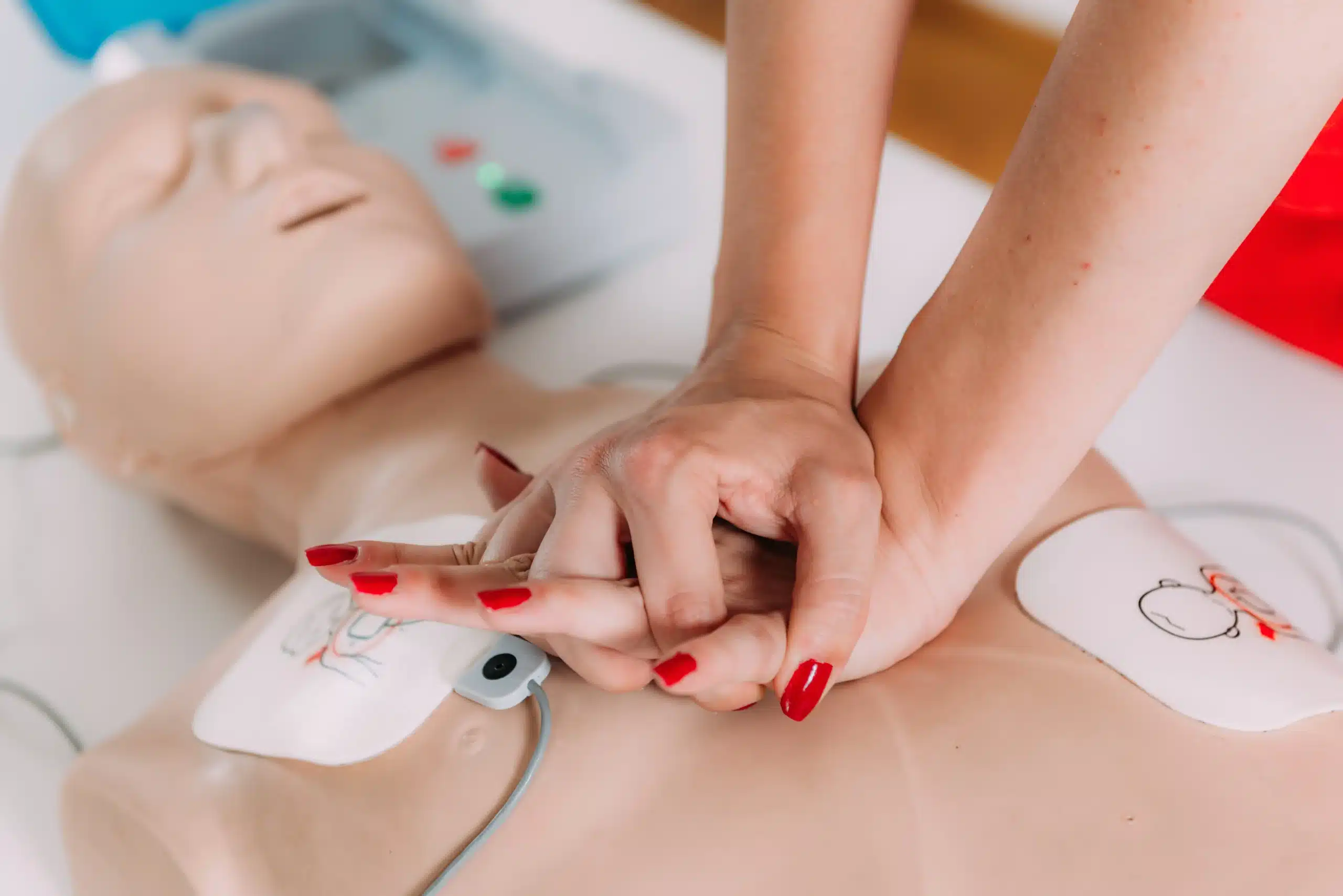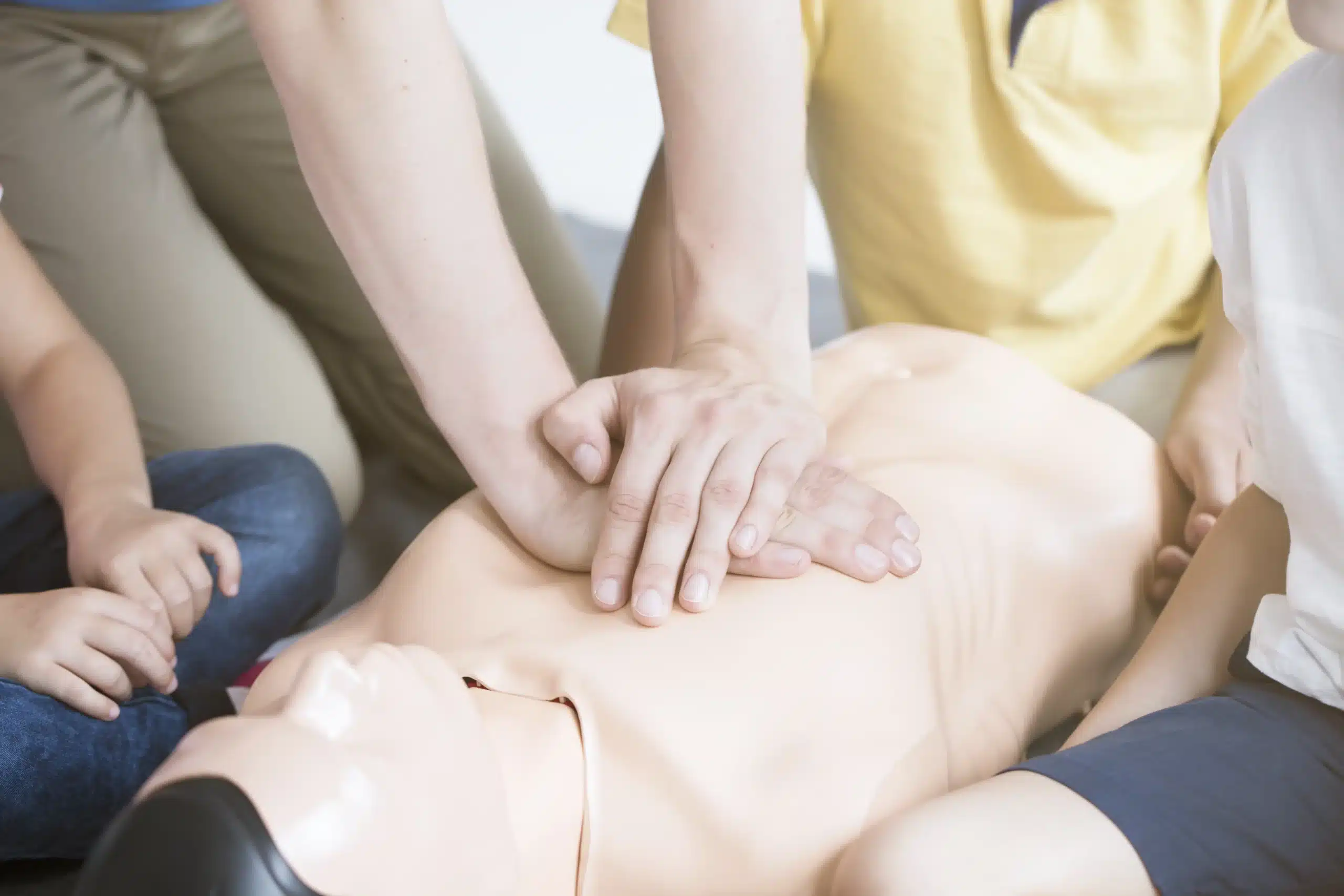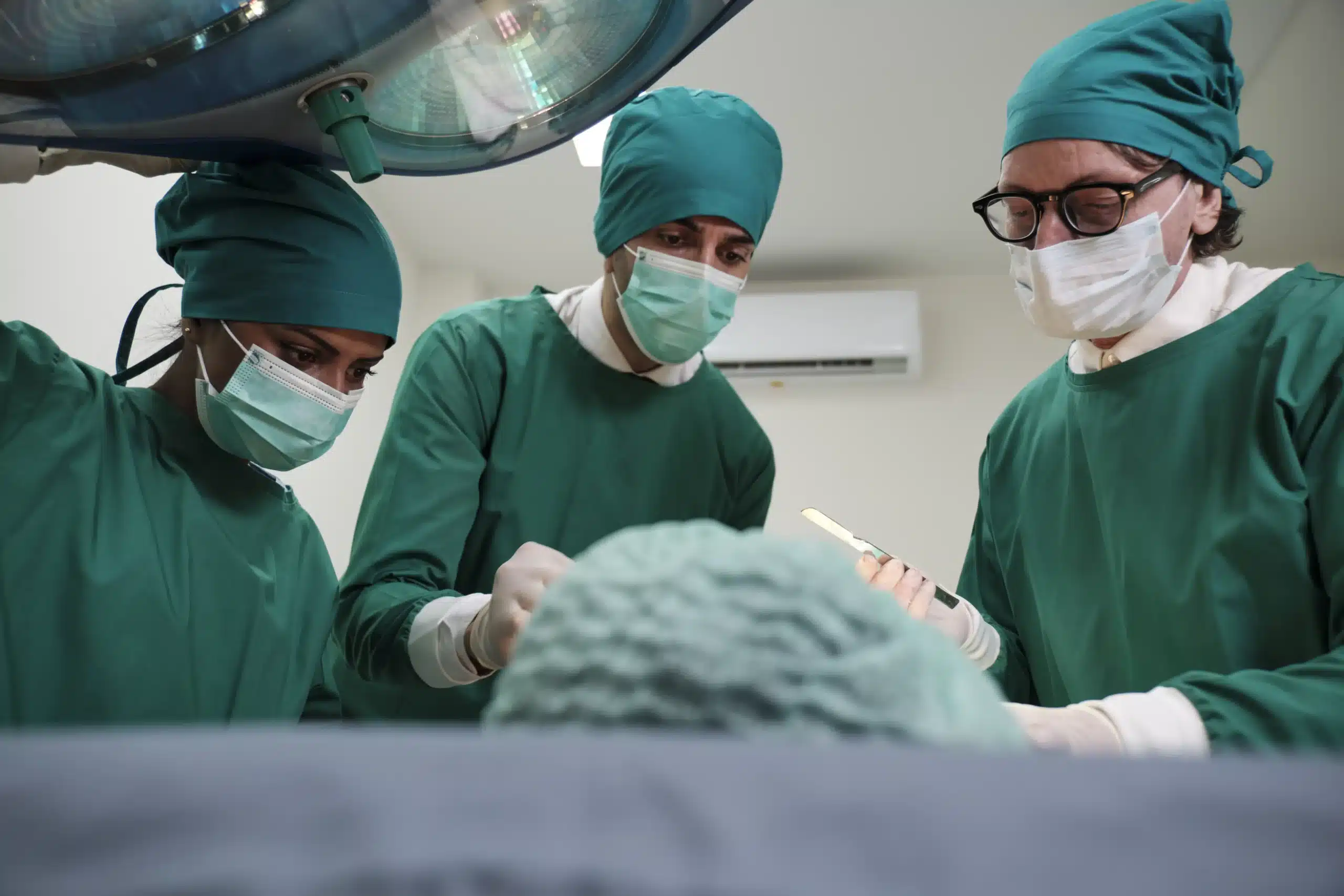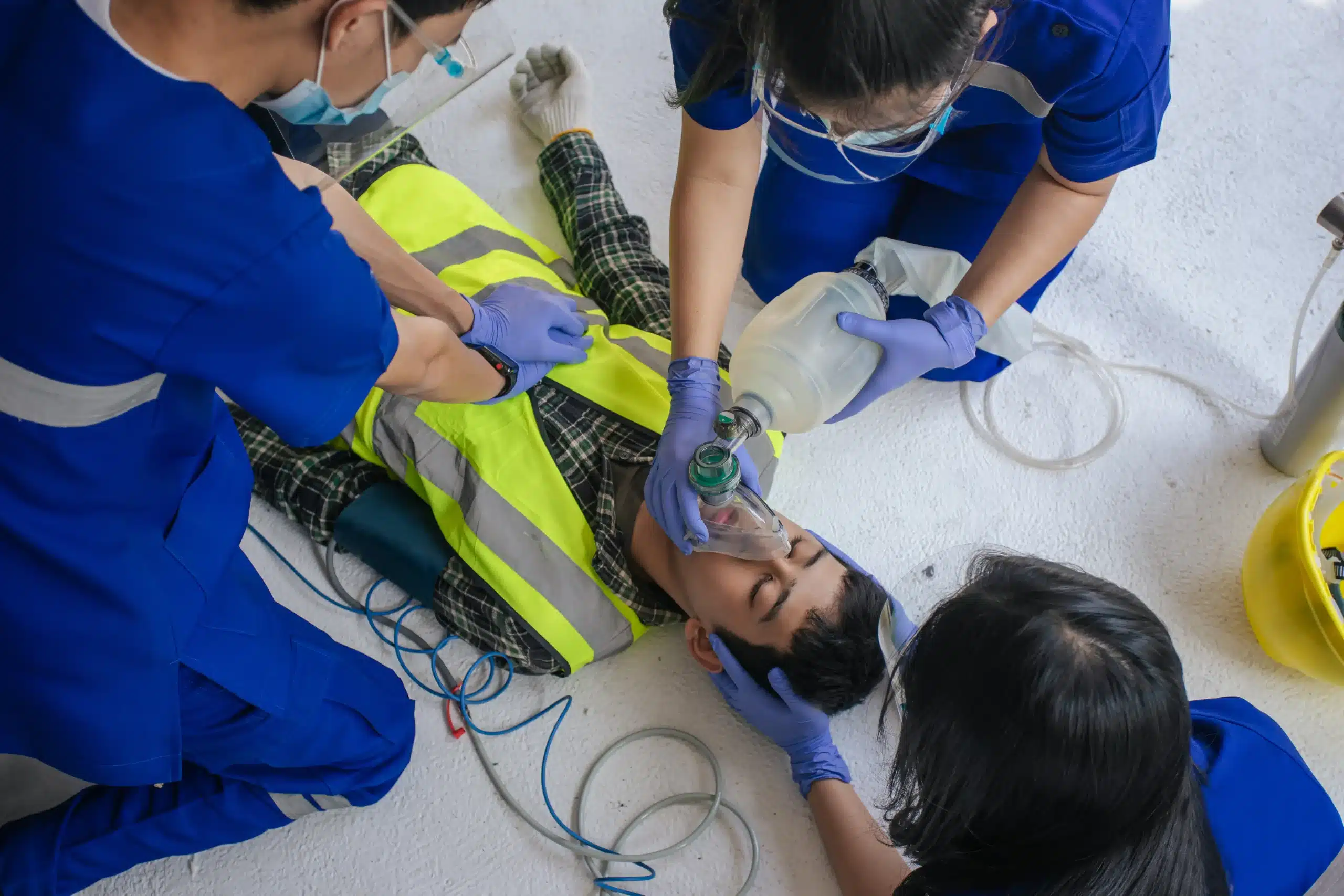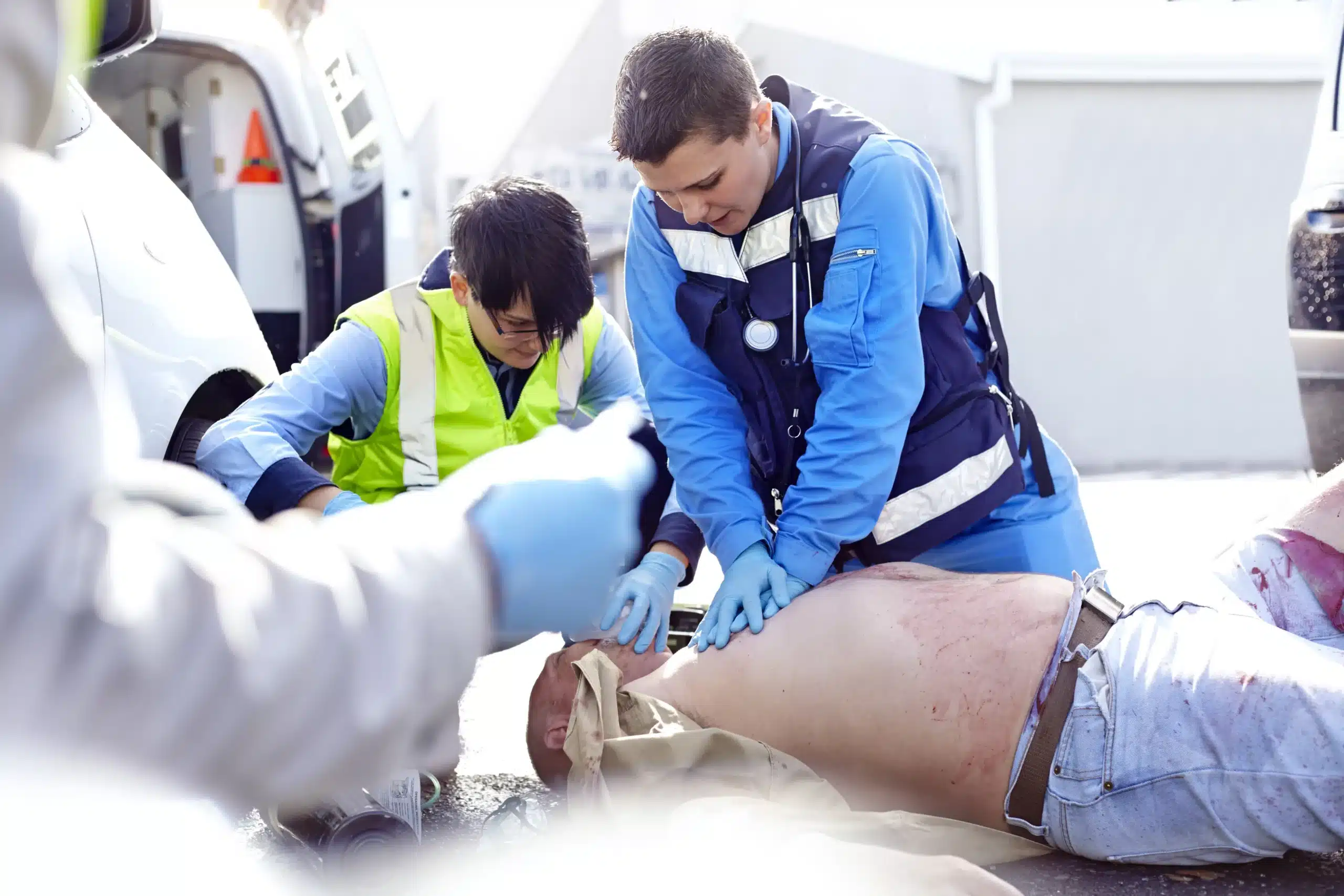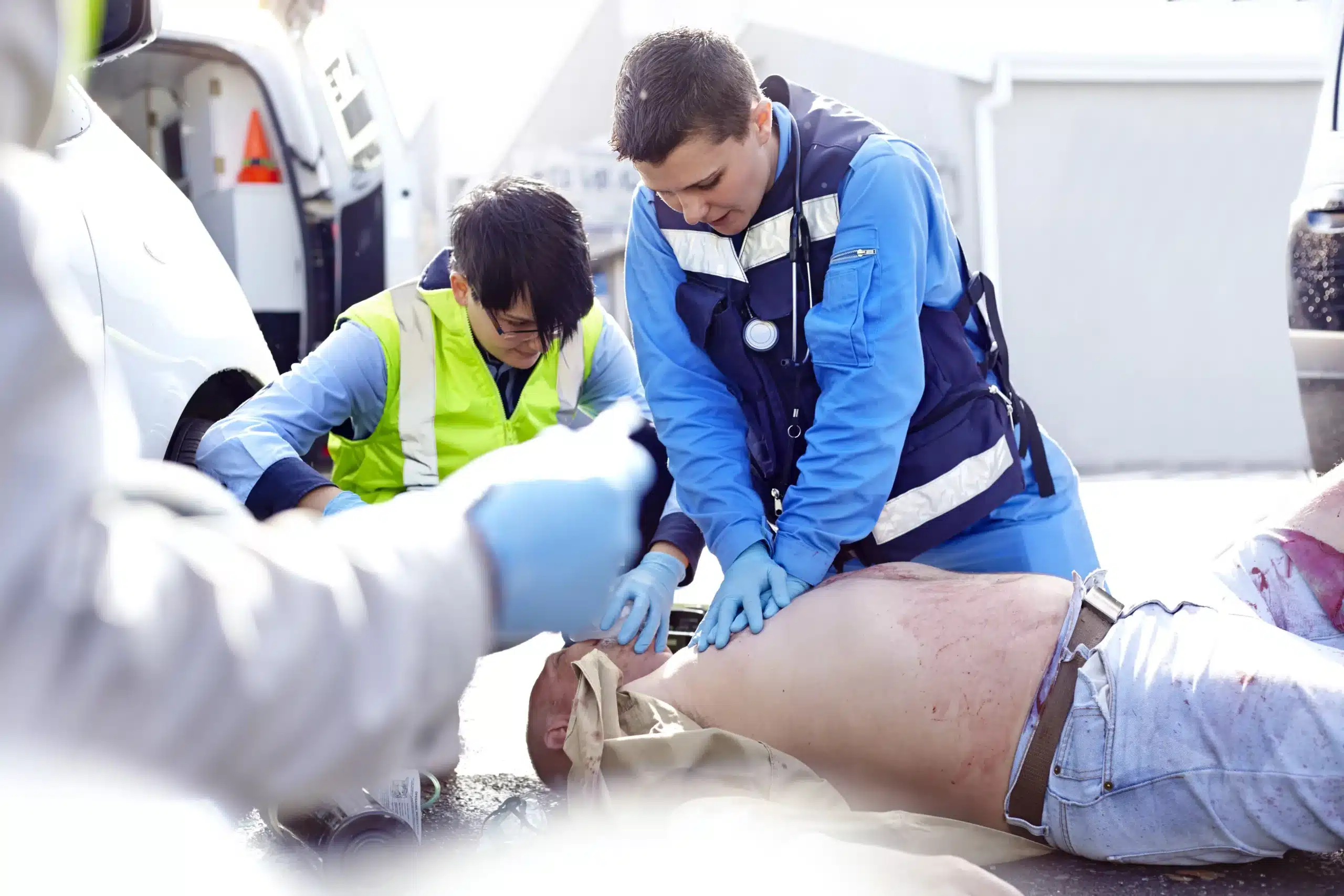Surviving cardiac arrest can be life-altering. While medical advancements have significantly improved survival rates, the emotional aftermath of CPR (Cardiopulmonary Resuscitation) often remains unexplored. Survivors frequently find themselves grappling with fear, stress, and deep existential questions that extend far beyond physical recovery.
If you’ve undergone CPR or know someone who has, understanding the psychological recovery process is crucial. This guide breaks down the emotional impact of CPR, offers practical coping strategies, and highlights why addressing psychological health is as essential as physical healing.
Understanding the Psychological Impact of CPR
Immediate Emotional Responses
CPR survivors often face disorienting emotions immediately after resuscitation. Fear, confusion, and anxiety are common, stemming from the trauma of a near-death experience. This moment can fundamentally shake a person’s sense of safety and well-being.
Acute Stress Disorder (ASD) is another frequent response. Survivors may encounter flashbacks, hypervigilance, or difficulty processing what occurred. These responses, while unsettling, are the body and mind’s way of grappling with the shock of the event.
Long-Term Effects on Mental Health
Even after medical recovery, the psychological aftermath of CPR can linger. Survivors are at an elevated risk of developing long-term conditions such as Post-Traumatic Stress Disorder (PTSD), depression, and survivor’s guilt.
According to a study published in Resuscitation Journal, the reported incidence rates among CPR survivors are strikingly high:
- Depression affects 14% to 45% of survivors.
- Anxiety disorders are present in 13% to 61%.
- PTSD is diagnosed in 19% to 27%.
These figures demonstrate that psychological recovery is not just an emotional “bonus,” but an integral part of the healing process.
Additionally, survivors often experience a shift in their worldview. Many reflect deeply on their mortality and purpose in life—this can inspire positive lifestyle changes but also cause existential distress if left unaddressed.
The Importance of Early Screening
Given the high prevalence of these conditions, early screening for psychological distress is crucial. Mental health professionals can help identify symptoms early and create tailored recovery plans.
Coping Strategies for Survivors and Families
Healing doesn’t happen overnight. However, with the right strategies and support systems, CPR survivors and their families can find a path to recovery.
Mindfulness-Based Techniques
Mindfulness practices can play a significant role in reducing anxiety and promoting mental clarity.
- Mindfulness Meditation: Dedicate 10 minutes a day to sit quietly, focusing on your breath. Apps like Calm or Headspace can guide you through this.
- Journaling: Writing down your thoughts helps process emotions and identify triggers.
- Yoga: Yoga combines physical movement with mindfulness, offering both mental and physical benefits.
These small practices, done consistently, create a sense of calm and control.
Support Networks
A strong support system can make a world of difference.
- Lean on Family & Friends: Share your emotions with trusted individuals. Having someone who listens without judgment can lighten the mental load.
- Join Support Groups: Organizations like the American Heart Association host survivor-focused forums where you can connect with others who’ve had similar experiences.
For families, being an active part of your loved one’s recovery means offering encouragement and seeking education on post-CPR challenges.
Lifestyle Adjustments
Healthy habits often complement emotional healing. Setting small, achievable goals can help survivors regain a sense of normalcy and control.
- Regular Physical Activity: Walking, swimming, or light gym workouts are not only great for physical rehab but also for mental clarity.
- Balanced Nutrition: Whole foods and a well-balanced diet fuel your body and mind.
- Prioritize Sleep: Quality sleep is essential for mental recovery. Avoid caffeine or screens before bedtime, and try to maintain a regular sleep schedule.
Seeking Professional Help
While self-help is empowering, professional guidance is indispensable for many survivors.
- Therapists or Counselors specializing in trauma can provide tools to process the experience.
- Cognitive Behavioral Therapy (CBT), which is evidence-based, helps reframe negative thought patterns.
- Eye Movement Desensitization and Reprocessing (EMDR) has been particularly effective for treating PTSD.
When choosing a mental health professional, look for someone with experience in health-related stress or trauma recovery. Platforms like Psychology Today or BetterHelp offer directories to help find licensed experts in your area.
Why Psychological Recovery is Essential
The mind and body are deeply interconnected. Addressing emotional health not only enhances mental well-being but also accelerates physical healing by reducing stress on the body.
Chronic stress from unresolved trauma can lead to high cortisol levels, which negatively impact cardiovascular health and overall recovery. By proactively engaging in psychological recovery, survivors often find they have more energy, improved focus, and a greater sense of optimism—all of which contribute to a successful physical rehabilitation.
Additionally, emotional healing enables survivors to rebuild trust in their own bodies, fostering confidence to re-engage in daily activities without fear or hesitation.
Empower Your Journey
Cardiac arrests and CPR are profoundly challenging experiences, but they also open the door to new beginnings. Life after CPR might look and feel different, but it’s important to remind yourself that resilience and recovery are achievable with the right tools and support.
If you’re a healthcare professional or community leader, consider gaining CPR certification or arranging classes for your organization. Trusted providers like Safety Training Seminars offer AHA-certified courses, including CPR and First Aid, Basic Life Support (BLS), Advanced Cardiac Life Support (ACLS), and Pediatric Advanced Life Support (PALS), in locations like Hayward, CA. Empowering yourself and your team can help you save lives and fuel your community’s strength.
Take the First Step Toward Healing
Psychological recovery for CPR survivors requires time, patience, and effort—but you do not have to walk this road alone. Whether through mindfulness techniques, professional counseling, or support networks, the path forward is filled with opportunities to heal and grow.
CPR survivorship often reveals an incredible strength most individuals never imagine they possess. By confronting the psychological impacts head-on, survivors can transform their experiences into powerful stories of resilience.
If you or someone you know might benefit from these insights, share this guide today—and remember, small steps lead to big changes.

